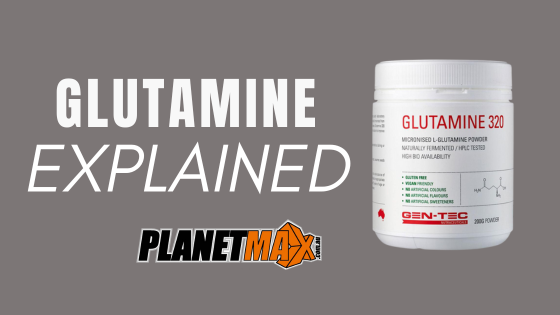What is it? L-Glutamine is the most abundant amino acid in muscle tissue, but can become depleted during intense exercise - which decreases strength and increaeses recovery times. Glutamine also plays an important role in protein synthesis (the creation of muscle tissue), neutralizing waste products, improving digestion and immune system function. Most athletes use it however just for the added recovery benefits from removing waste products. Improved Digestion, better recovery and performance, pretty much everyone exercising will find Glutamine to be their new best friend.
What does it do? Glutamine has several important functions
- Able to bond with and neutralize the amine waste product released when BCAA are broken down for energy in the muscle. Faster waste product removal leads to faster recovery and growth
- Vital component of the body’s main anti-oxidant, Glutathione. Glutathione is made of 3 amino acids, Glutamine, Cysteine and Glycine and is a potent free radical scavenger.
- Helps protect the lining of the digestive tract. The digestive system and some components of your immune system work together. If your digestive health is impaired then eventually your immune system will be compromised.
Who Should take it? Excessive stress tends to deplete the stored levels of Glutamine in your body. Digestive function takes propriety over 21 inch guns, so the body will divert glutamine away from muscles to aid in gut function and your immune system. Athletes, people with mild digestive issues (larger digestive issues should be referred to your GP) and anybody that’s overly stressed at work/home/life will benefit from glutamine supplementation.
How do I take it? 5 to 15 grams daily seems to be the standard dosage for both muscle recovery and Intestinal support. Splitting the dosage throughout the day is better for absorption. The larger the athlete then the larger the dosage. Start with 5 grams after exercise and see how your body responds for a few days before gradually increasing the dosage if necessary.

